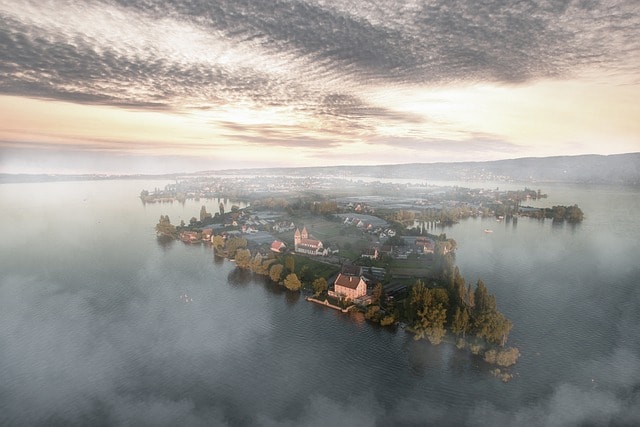Unless there's an ice cube-making instrument handy, you have to plan meticulously to ensure you're not left with warm drinks questioning, "How long does it take for water to freeze?"
The specific freezing time is impracticable to ascertain. Your best gamble is experimenting with various water temperatures, freezer temperature, and ice trays and understanding how your freezer operates.
How long it needs for water to freeze depends on various factors, including:
- How much water you're attempting to freeze.
- The heat of the water.
- The air heat around the water you are freezing.
Typically, the freezing point of water is 32 degrees Fahrenheit. Although this is technically accurate, it depends on how much liquid you're discussing. Even in cold air, a significant body of water will take weeks to freeze, whereby a glass of water could refrigerate overnight.
You require ice cubes to have your cocktails cool and your Cola chilled if you're holding a party. While everyone is having fun, the last thing you do not want to know is that your pantry has run out of Ice! Since a glass of frozen water will not help you entertain your guests at a party, you'll require to concentrate on the freezing temperature of water to ice cubes for drinks. Ensure you have sufficient ice cubes at the time of the party. If you drop out of Ice, you'll take time out from owning fun with your friends to rush to the market to purchase more.
Understanding the Freezing Process
The freezing process of water is a fascinating transformation where liquid water turns into solid ice. This occurs when the water's temperature drops to its freezing point, which is 32 degrees Fahrenheit (0 degrees Celsius) under standard atmospheric pressure. As the temperature decreases, water molecules slow down and start to bond together, forming a crystal lattice structure that we recognize as ice crystals.
Several factors can influence this freezing process. For instance, the initial temperature of the water plays a crucial role. Water that starts off warmer will take longer to reach the freezing point compared to cooler water. Additionally, impurities or dissolved gases in the water can affect how ice crystals form. Pure water tends to freeze more uniformly, resulting in clearer ice, while water with impurities may freeze more irregularly, creating cloudy or brittle ice. The rate at which the water is cooled also matters; slow cooling allows for a more gradual and uniform formation of ice crystals, whereas rapid cooling can lead to smaller, more irregular ice structures.
How Long Does Water take to Freeze in a Standard Ice Cube Tray?
A conventional plastic standard ice cube tray that accommodates 12 cubes filled with room temperature water will take approximately 3 to 4 hours to freeze in a home freezer. But, of course, you have ice trays in different sizes made out of diverse materials, which will influence the water freezing point. In addition, there are these determinants that will affect the time it takes to make ice cubes:
- Dimension Of The Cube:Â If you have an ice tray of unique size, it will influence the freezing time. So, see to it that you go for those cute ice cube trays that allow ice in varying shapes or the tiny ice cubes that are excellent for crushed ice or garnishing drinks. The larger the block, the longer it will take to freeze.
- Freezing Individual Ice Cubes:Â The surface area affects the time it takes for your ice cubes to be ready to be used. Water freezes from the outside in. It means that ice trays with air space between each cube freeze quicker than a tray with dividers.
- Air Temperature:Â Water freezes at 32 degrees Fahrenheit (0 degrees Celsius). But did you know that home freezer don't all work at the same air temperature? Although most work at 0 degrees Fahrenheit, this can vary. Every moment you open your freezer or put edibles in that's at room temperature, the temperature in the freezer rises. If you're not concerned, this will reduce the speed of the ice-making process.

Effect Of The Container Material and Freezer Temperature
How fast water freezes depends on several environmental factors. Experiments have shown that using a plastic bottle can affect the freezing time of water. Additionally, the freezing times of plastic water bottles vary based on factors like the bottle's size, water temperature, and freezer settings. However, the ice tray's material regularly does not influence how long it needs for the water to freeze and transform into ice cubes. Whether your ice cube tray is silicone or plastic, it should not create a difference. However, there are limitations to this rule. If the ice tray is composed of a material that reduces the water's temperature, it will affect how long it needs to freeze.
The Mpemba Effect: Hot Water Freezing Faster
The Mpemba effect is a curious phenomenon where hot water can freeze faster than cold water under certain conditions. Named after a Tanzanian student who observed this in the 1960s, the Mpemba effect has puzzled scientists for decades. While the exact reasons behind this effect are still debated, several theories offer possible explanations.
One theory suggests that hot water contains more dissolved gases than cold water. As the hot water cools, these gases are released, creating a layer of cold water near the surface that can freeze more quickly. Another explanation involves the formation of a layer of supercooled water near the surface of the hot water. This supercooled layer can freeze faster than the surrounding water, accelerating the overall freezing process. Despite these theories, the Mpemba effect remains a topic of ongoing research and discussion in the scientific community.
Supercooling and Freezing Point
Supercooling is an intriguing phenomenon where water is cooled below its freezing point without actually turning into ice. This can happen when the water is exceptionally pure and free of impurities, and when the cooling process is slow and undisturbed. Supercooled water can remain in a liquid state even below 0°C, until it is disturbed or nucleated, at which point it rapidly freezes.
The freezing point of water is typically 32°F (0°C) at standard atmospheric pressure. However, this can vary depending on the presence of impurities or dissolved substances. For example, seawater has a lower freezing point than freshwater due to its salt content. Similarly, adding substances like sugars or alcohols to water can lower its freezing point, affecting how and when the water will freeze. Understanding these variations is crucial for applications ranging from culinary arts to scientific research.
Tricks to make water freeze quicker: Hot Water Freezes Faster
There are two comparatively simple ways to freeze water swiftly: hot or boiling water and an ice maker. Of course, it is conceivable to use liquid nitrogen to get water to freeze fast. Try these methods instead:
- Hot water may come as a wonder, but hot water freezes faster than cold water. Recognized as the Mpemba effect, tests across various conditions showed that hotter water can solidify faster than cold water. The latent heat involved in the freezing process plays a crucial role in this phenomenon.
- An ice maker - This gizmo freezes water by revealing the water to compressor coils in the ice maker. It is an easy way to freeze water fast.
- Make Ice that melts slower "“ Instead of making ice freeze faster, the different idea is to ensure your Ice melts as gently as possible. This way, you'll need less Ice to notice you during your dinner party.

Yes, it is conceivable to make Ice that melts gradually! Here are some tips:
- Get Ice using boiled water "“ If you boil your water before employing it to create Ice, you will decrease air bubbles and contaminants. It will decrease down melting time and also make more transparent Ice.
- Mix salt into your water - If you mix some salt into your melting process, you'll reduce the melting time. Remember that it will also slow down freezing, so don't try this tip if you want Ice in a hurry!
- Make big ice cubes or spheres "“ The tinier the ice block's surface is exposed to the air, the slower it will melt. It means that small cubes melt faster. For the ultimate Ice, utilize an ice ball maker to make beautiful, round icy spheres that melt slowly.
Wrap Up
The quick answer is that a conventional ice tray takes around 3 to 4 hours to freeze in a standard home freezer under freezing temperatures. However, the entire time could be influenced by several environmental determinants and the dimension of the cubes you're trying to freeze. There are plans to rush up freezing water, like utilizing hot water instead of cold water and ensuring the air in your freezer is as cold as possible. You could also employ an ice maker to get ice that melts slower.
Leave a Comment